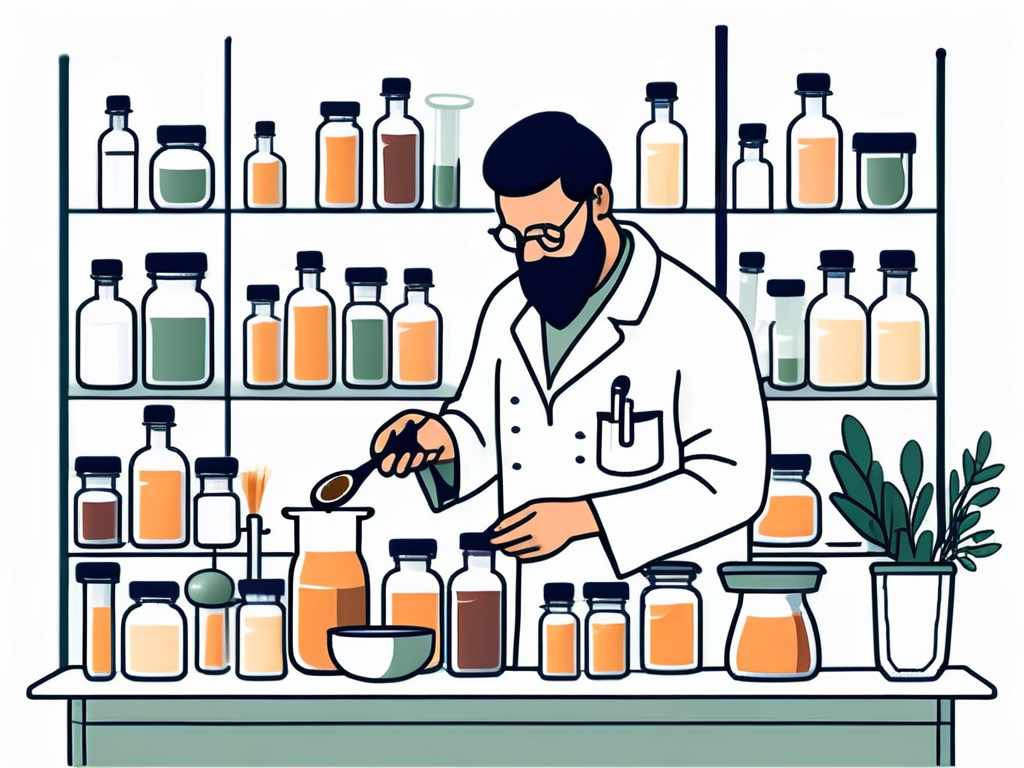In the world of pharmaceuticals, there’s a special place for compounding pharmacies. These unique establishments are where pharmacists combine, mix, or alter ingredients to create medications tailored to the needs of individual patients. This article will delve into the nitty-gritty of over-the-counter (OTC) products in the context of compounding pharmacies.
Over-the-counter (OTC) medications are drugs that you can buy without a prescription. They are safe and effective when you follow the directions on the label and as directed by your health care professional. In compounding pharmacies, these OTC products can be customized to suit the specific needs of a patient. Let’s dive deeper into this fascinating world.
Understanding Compounding Pharmacies
Compounding pharmacies are unique because they can create personalized medications. This is different from most pharmacies, which sell pre-made medications from pharmaceutical companies. Compounding pharmacies have the ability to alter the form of a medication, combine multiple medications, or create a medication that is not commercially available.

For example, if a patient has difficulty swallowing pills, a compounding pharmacy can create a liquid version of the medication. Or, if a patient is allergic to a certain ingredient in a medication, the compounding pharmacy can create a version of the medication without that ingredient.
Role of Compounding Pharmacies in Healthcare
Compounding pharmacies play a crucial role in healthcare. They provide solutions for patients who cannot take standard medications due to allergies, side effects, or difficulty swallowing. They also create medications for specific needs, such as high-dose medications for pain management or low-dose medications for children.
Compounding pharmacies also provide medications that are not commercially available. For example, if a medication is discontinued by the manufacturer, a compounding pharmacy can often create a similar medication. This can be a lifesaver for patients who rely on that medication.
Regulation of Compounding Pharmacies
Compounding pharmacies are regulated by both state and federal laws. They must meet strict standards for cleanliness, testing, and record-keeping. They are also subject to regular inspections to ensure they are complying with all regulations.
However, it’s important to note that compounded medications are not FDA-approved. This is because they are personalized for individual patients and therefore cannot be tested in the same way as mass-produced medications. However, the ingredients used in compounded medications are FDA-approved.
Over-the-Counter (OTC) Products in Compounding Pharmacies
Over-the-counter (OTC) products are medications that you can buy without a prescription. They are considered safe and effective for the general public when used as directed. In a compounding pharmacy, these OTC products can be customized to meet the specific needs of a patient.

For example, a compounding pharmacy could create a custom strength of an OTC pain reliever for a patient with chronic pain. Or, they could create a dye-free version of an OTC allergy medication for a patient with a dye allergy.
Benefits of OTC Products in Compounding Pharmacies
One of the main benefits of OTC products in compounding pharmacies is that they can be personalized for individual patients. This can make the medication more effective and reduce the risk of side effects. For example, if a patient is sensitive to a certain ingredient in an OTC medication, the compounding pharmacy can create a version of the medication without that ingredient.
Another benefit is that compounding pharmacies can create medications that are not commercially available. This can be particularly helpful for patients who rely on a medication that has been discontinued by the manufacturer.
Considerations When Using OTC Products from Compounding Pharmacies
While there are many benefits to using OTC products from compounding pharmacies, there are also some considerations to keep in mind. First, because compounded medications are not FDA-approved, there is a risk that they may not be as effective as the commercially available version. Therefore, it’s important to use these products under the guidance of a healthcare professional.
Second, compounded medications can be more expensive than commercially available medications. This is because they require more time and resources to create. However, many patients find that the benefits of personalized medication outweigh the additional cost.
Common OTC Products in Compounding Pharmacies
There are many different types of OTC products that can be customized in a compounding pharmacy. Some of the most common include pain relievers, allergy medications, skin creams, and digestive aids. However, the possibilities are virtually endless, as the compounding pharmacy can create a custom medication based on the specific needs of the patient.

For example, a patient with chronic pain may benefit from a custom strength of an OTC pain reliever. Or, a patient with a skin condition may benefit from a custom skin cream with specific ingredients to treat their condition.
Customizing OTC Products
When customizing an OTC product, the compounding pharmacist will consider the patient’s specific needs and health conditions. They may also consider the patient’s preferences, such as if they prefer a liquid or pill form of the medication.
The compounding pharmacist will then use their expertise to create a medication that meets these needs. This may involve altering the form of the medication, combining multiple medications, or creating a medication with specific ingredients.
Quality Control in Compounding Pharmacies
Quality control is a crucial aspect of compounding pharmacies. They must follow strict standards to ensure the safety and effectiveness of their medications. This includes testing the ingredients, maintaining a clean environment, and keeping detailed records of their processes.
Compounding pharmacies are also subject to regular inspections by regulatory authorities. These inspections ensure that the pharmacy is complying with all regulations and maintaining the highest standards of quality.
Conclusion
Over-the-counter (OTC) products in compounding pharmacies offer a unique solution for patients who need personalized medications. Whether it’s creating a custom strength of a pain reliever, a dye-free version of an allergy medication, or a medication that’s no longer commercially available, compounding pharmacies fill a crucial gap in the healthcare system.
While there are considerations to keep in mind, such as the lack of FDA approval and the potential for higher costs, many patients find that the benefits of personalized medication outweigh these factors. As always, it’s important to use these products under the guidance of a healthcare professional.




Great breakdown of OTC compounding! It’s helpful to understand how personalized medications can make a difference. Thanks for sharing!